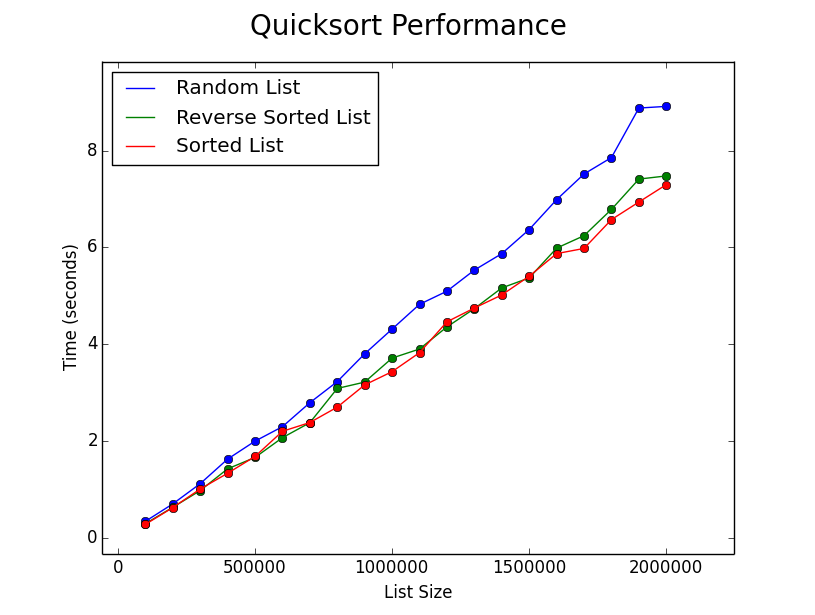Quicksort in C#
I have written an implementation of quicksort in C#. It can be found here.
https://github.com/mattnedrich/algorithms/blob/master/csharp/sorting/quicksort/Quicksorter.cs
It operates on anything that implements IComparable<T>. Suppose you have a class SortableObject that implements IComparable<SortableObject>. The usage model in this scenario would be
List<SortableObject> items = ... Quicksorter<SortableObject> sorter = new Quicksorter<SortableObject>(); sorter.Sort(items);
My implementation contains a main Partition method that is called recursively to perform the sorting. In addition, there are two helper methods. The first, ChoosePivotIndex is responsible for choosing a pivot element from a list to be sorted. The current implementation naively selects a pivot at random. This method is virtual to keep it Open/Closed and allow others to extend it with a better pivot selection method if desired. The other method, Swap, swaps two elements in a list. I’ve found that in-lining the swapping yields faster performance, though I decided not to do so for clarity.
I benchmarked my implementation on different types of input of varying length. Results below.

As displayed, my implementation (even with the naive pivot selection) is fairly robust to random, sorted, and reverse sorted lists.